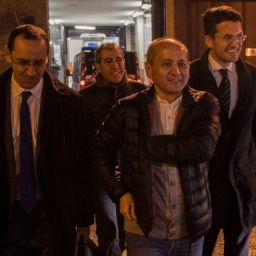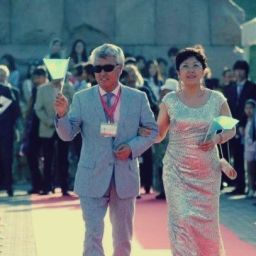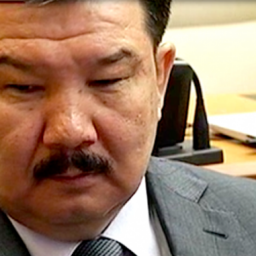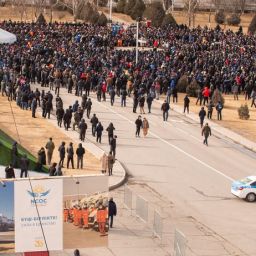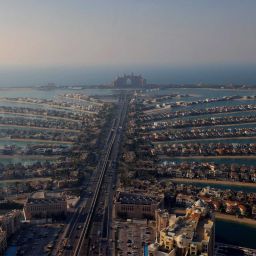Caspian Cabals exposes how Western companies desperate for new oil reserves catered to Russian power, enriching Putin cronies and Kazakh elites and ignoring corruption risks to keep the oil moving.
The Caspian Cabals investigation reveals how Western oil companies — including Chevron Corp., ExxonMobil Corp., Shell PLC, and Italy’s Eni S.p.A. — ignored bribery risks and massive cost overruns to secure their stake in a critical Kazakhstan-Russia pipeline, then delivered substantial control of it to the Kremlin.
Western governments had other things in mind at the Caspian pipeline’s inception 30 years ago. Besides the potential for independence from Middle Eastern oil, they envisioned the pipeline as an instrument for post-Soviet prosperity and democracy. Western investment could provide an economic boost to impoverished regions and seed democratic values among authoritarians in Central Asia.
Instead, the investigation shows, the 939-mile pipeline, which runs from Kazakhstan’s vast crude reserves through Russia to the Black Sea, has produced environmental devastation and allegations of financial corruption. And it has bolstered anti-democratic powers in Russia and Kazakhstan, which have met opposition to the pipeline with intimidation and worse. Today, the pipeline is vulnerable to the will of the Kremlin. The first full shutdown, attributed to storm damage, occurred a month after Russia’s February 2022 invasion of Ukraine and two weeks after the U.S. moved to invoke sanctions in response.
Behind the scenes, the International Consortium of Investigative Journalists found, Russian officials were shaping a public message to exaggerate the length of the shutdown in order to “scare” the West and underscore the Kremlin’s power over oil markets despite the sanctions. Since the invasion, there have been at least 20 pipeline disruptions or suspensions of oil shipments. When shipments are halted, oil prices rise and Europeans face potential fuel shortages.

The investigation was led by ICIJ, the Washington, D.C.-based nonprofit newsroom and global network of reporters, with 26 media partners including NRC, Der Spiegel, Radio Free Europe/Radio Liberty, the Russian investigative group Proekt, Italy’s L’Espresso, and Germany’s Paper Trail Media. Over two years, reporters interviewed hundreds of sources, including company insiders and former executives. They combed through tens of thousands of documents: leaked internal corporate records and confidential emails, contracts, audits, land records, and court and regulatory filings.
Five whistleblowers alleged in interviews with ICIJ that Western oil companies’ dealings in Russia or Kazakhstan included payments in violation of the U.S. Foreign Corrupt Practices Act.
In a statement to ICIJ, Chevron said the company is “committed to ethical business practices, operating responsibly, conducting its business with integrity and in accordance with the laws and regulations of each of the jurisdictions in which it operates.” Exxon did not respond to requests for comment.
A Shell spokesman said the company does not tolerate bribery in any form. An Eni spokesperson said, “We are committed to upholding the highest standards of transparency, ethical conduct and environmental responsibility.” The company referred questions about the pipeline to its owner, the Caspian Pipeline Consortium (CPC), which did not respond to multiple requests for comment.
The reporting shows how a quest for profits brought the Western companies that co-own the pipeline — and operate the three oil fields that supply it — to sign off on lucrative contracts worth hundreds of millions of dollars to businesses controlled by Russian elites and to a firm partially owned by Timur Kulibayev, the billionaire son-in-law of Kazakhstan’s former president, Nursultan Nazarbayev.

Even as the West has tightened the economic screws on Russia for its war against Ukraine, the pipeline continues to send hundreds of millions of tax dollars a year to Russian authorities. Pipeline advocates have spent millions more on lobbyists in the U.S. and have put pressure on the EU Commission to ensure that the pipeline remains exempt from sanctions, and to water down transparency rules that would force oil companies to disclose their payments to the governments.
As Vladimir Putin’s political power grew, the investigation found, Russia seized on opportunities to flex its muscle through Transneft, the state-owned pipeline company. Transneft began employing “bully tactics” in a $1.5 billion pipeline expansion project. It held up contracts and sought to steer deals to its affiliate companies — a direct conflict of interest. In one instance, it locked Western oil representatives out of a building, preventing them from reviewing bids for a contract. The project cost skyrocketed to $5.4 billion. Eventually, Transneft blocked the election of CPC board members. As a conciliatory move, the Western oil partners handed significant management of the pipeline to Russia.
A politically influential Russian company, Velesstroy, became one of the pipeline’s key suppliers under Transneft management. Velesstroy is co-owned by two Croatian businessmen, both under sanctions by the U.K. for their ties to the Russian energy sector. One, Krešimir Filipović, is known in Russian and other media as “Putin’s wallet” in the Balkans. Bank documents, inspection reports and court filings show how the company avoided taxes and piled up safety violations. At least 18 Velesstroy workers have died on the job since 2015, including one at a pipeline site. Nevertheless, Western oil partners signed off on contracts with the company amid allegations that the deals were vastly overpriced.
- Recommended reading
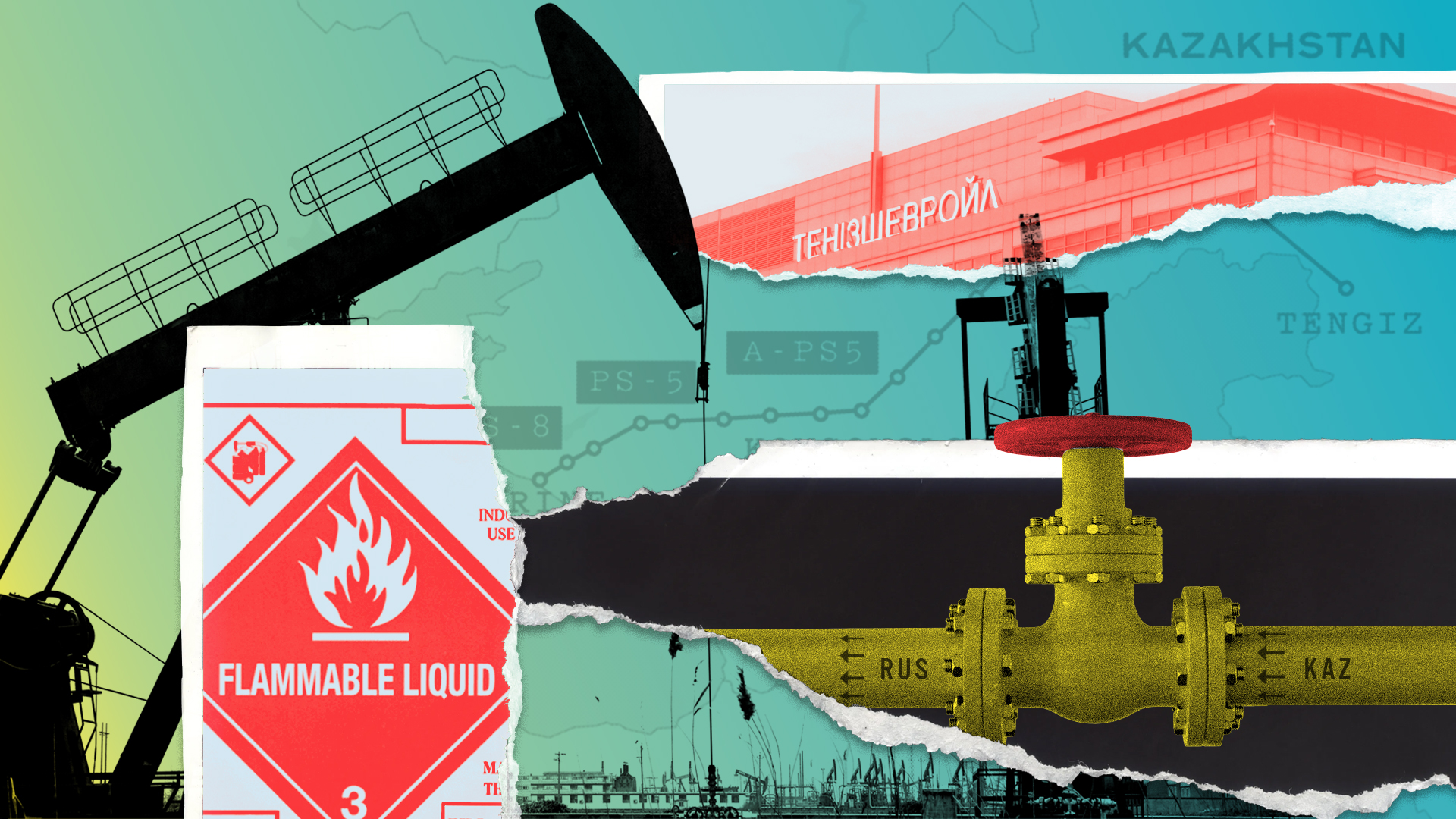
FAQ
Frequently asked questions about the Caspian Cabals investigation
Nov 22, 2024
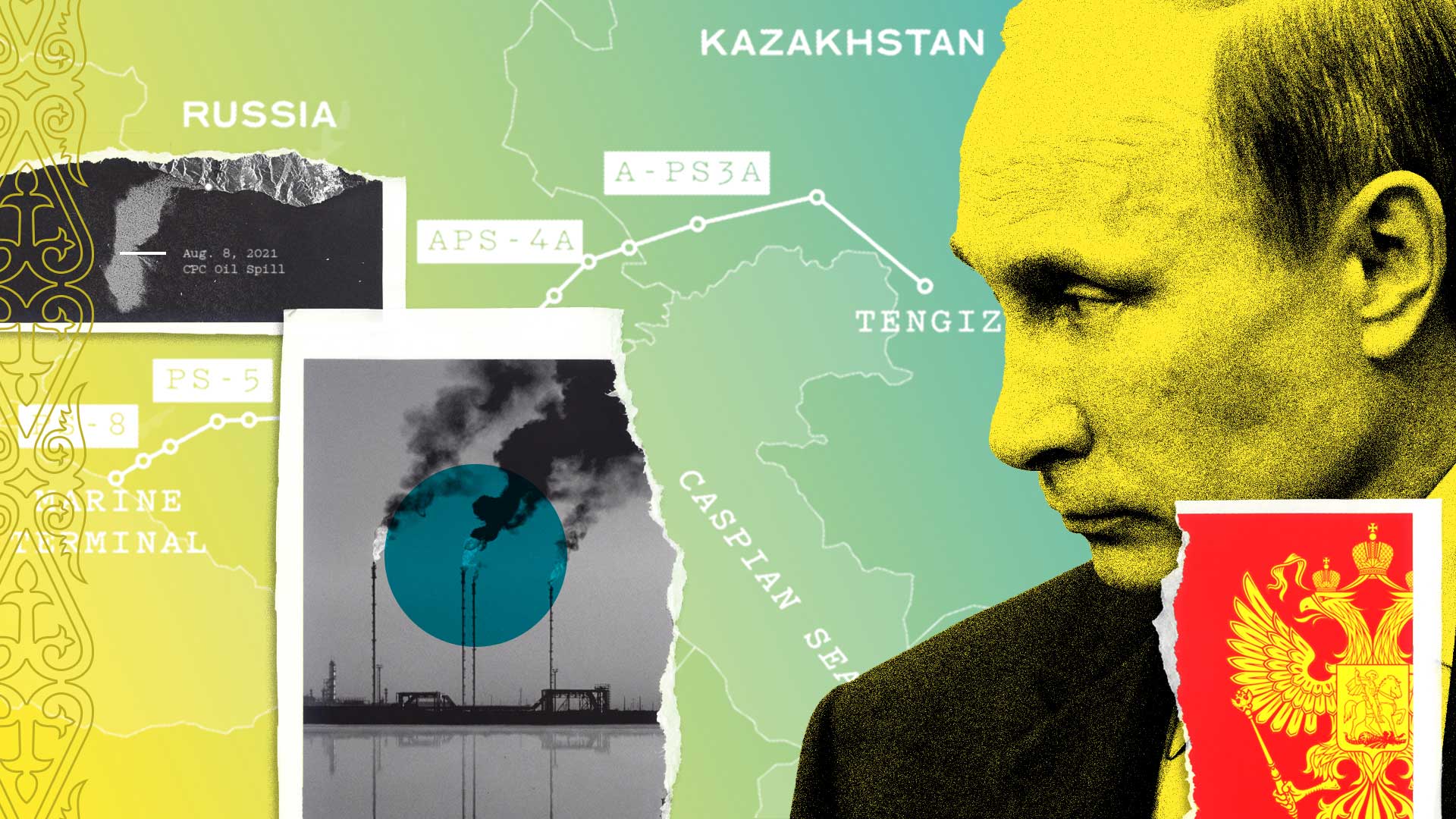
CASPIAN CABALS
Putin’s pipeline: How the Kremlin outmaneuvered Western oil companies to wrest control of vast flows of Kazakhstan’s crude
Nov 22, 2024
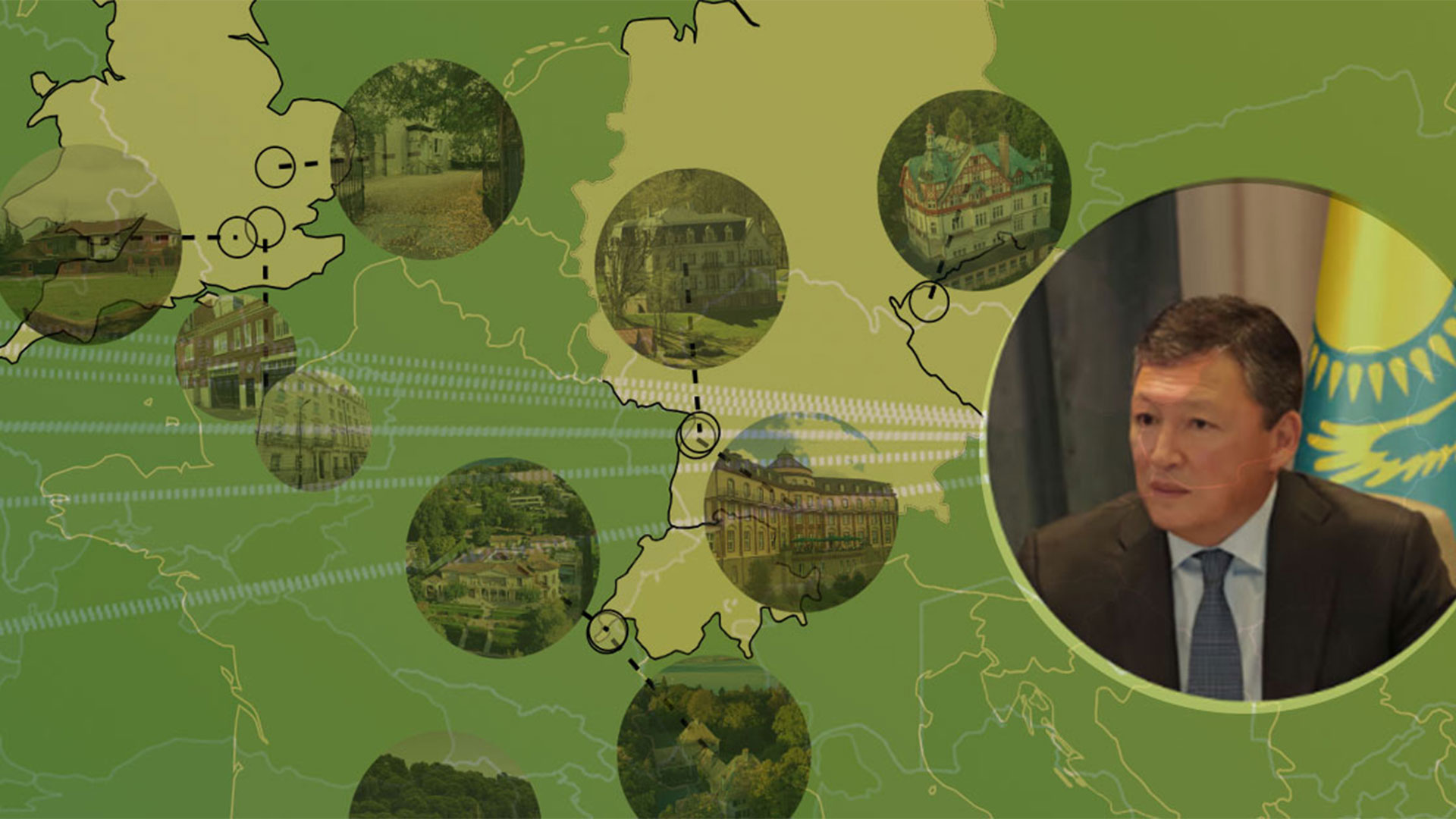
INTERACTIVE
Uncovering Timur Kulibayev’s European property empire
Nov 22, 2024
In Kazakhstan, a fat contract went to a company tied to the then-president’s son-in-law, Kulibayev. The $276.5 million contract for two pumping stations was awarded to KazStroyService. During the six-year project, public records show, Kulibayev’s Singapore-based private equity firm listed KazStroyService among its holdings. The project cost ballooned to $486 million, with little explanation for the increase — and the company completed the work four years behind schedule. Kulibayev’s lawyers told ICIJ he was not involved in management of the company or in the contract negotiations or discussions.
In both Russia and Kazakhstan, the oil partners kept paying as contractors drove up costs by millions of dollars through contract changes. Our reporting found at least 10 cases of subcontractors allegedly pocketing advance payments, then disappearing without doing the work.
And in poverty-stricken towns near the Kazakh oil fields, ICIJ interviewed villagers who battle chronic illnesses and who reminisced about a countryside they no longer recognize — a place where they could breathe clean air, drink untainted water and grow gardens free of contamination. To many, the oil and gas fields that feed the pipeline symbolize broken promises. Their hopes of getting a share of the country’s oil largesse have evaporated. They have lost the homeland they knew.
https://youtube.com/watch?v=Oa3DMefXug4%3FinitialWidth%3D670%26childId%3Dicij-iframe‑1%26parentTitle%3DAbout%2520the%2520Caspian%2520Cabals%2520investigation%2520-%2520ICIJ%26parentUrl%3Dhttps%253A%252F%252Fwww.icij.org%252Finvestigations%252Fcaspian-cabals%252Fabout-caspian-cabals-investigation%252F
The ICIJ team
Director: Gerard Ryle
Managing editor: Fergus Shiel
Deputy managing editor: Annys Shin
Senior Editors: Marcia Myers, Whitney Joiner, David Rowell, Dean Starkman
Head of data and research: Delphine Reuter
Reporters: Sydney Freedberg, Nicole Sadek, Agustin Armendariz, Thomas Rowley, Tanya Kozyreva, Matei Rosca, Marcos Garcia Rey, Peter Stone, Roy W. Howard Fellow Eve Sampson, Naubet Bisenov, Jesús Escudero, Denise Ajiri, Jelena Cosic, Karrie Kehoe.
Associate editors and fact checkers: Richard H.P. Sia, Kathleen Cahill
Copy editor: Angie Wu
Editor: Tom Stites
Head of digital and product: Hamish Boland-Rudder
Digital editor: Joanna Robin
Digital producer: Carmen Molina Acosta
Web developer: Antonio Cucho
Social media producer: Daniela Vivas Labrador
Chief technology officer: Pierre Romera Zhang
Technology team: Caroline Desprat, Soline Ledésert, Miguel Fiandor Gutiérrez, Bruno Thomas, Maxime Vanza Lutonda, Whitney Awanayah, Javier Ladrón de Guevara, Jorge González, Carolina Verónica López Cotán, Clément Doumouro, Marie Gillier.
Design and illustration: Ben King
Training manager: Jelena Cosic
The investigation team
- Gerard Ryle (ICIJ) Australia
- Hamish Boland-Rudder (ICIJ) Australia
- Stefan Melichar (Profil) Austria
- Lars Bové (De Tijd) Belgium
- Delphine Reuter (ICIJ) Belgium
- Kristof Clerix (Knack) Belgium
- Mašenjka Bačić (Oštro) Croatia
- (OCCRP-CIReN, the Cyprus Investigative Reporting Network) Cyprus
- Carl Schreck (Radio Free Europe (RFE/RL)) Czechia
- Mukhtar Senggirbay (Radio Free Europe (RFE/RL)) Czechia
- Reid Standish (Radio Free Europe (RFE/RL)) Czechia
- Dean Starkman (ICIJ) France
- Marcel Rosenbach (Der Spiegel) Germany
- Bastian Obermayer (Der Spiegel/Standard/Paper Trail Media) Germany
- Carina Huppertz (Der Spiegel/Standard/Paper Trail Media) Germany
- Elisa Simantke (Der Spiegel/Standard/Paper Trail Media) Germany
- Frederik Obermaier (Der Spiegel/Standard/Paper Trail Media) Germany
- Hannes Munzinger (Der Spiegel/Standard/Paper Trail Media) Germany
- Harry Karanikas (Freelance) Greece
- Nikolas Leontopoulos (Reporters United) Greece
- Sotiris Sideris (Reporters United) Greece
- Thodoris Chondrogiannos (Reporters United) Greece
- Ritu Sarin (Indian Express) India
- Sukalp Sharma (Indian Express) India
- Karrie Kehoe (ICIJ) Ireland
- Uri Blau (Shomrim) Israel
- Gloria Riva (L’Espresso) Italy
- Leo Sisti (L’Espresso) Italy
- Paolo Biondani (L’Espresso) Italy
- Naubet Bisenov (ICIJ) Kazakhstan
- Ainur Saparova (Radio Free Europe (RFE/RL)) Kazakhstan
- Kobylan Aldibekov (Radio Free Europe (RFE/RL)) Kazakhstan
- Manas Qaiyrtaiuly (Radio Free Europe (RFE/RL)) Kazakhstan
- Mariya Melnikova (Radio Free Europe (RFE/RL)) Kazakhstan
- Vyacheslav Abramov (Vlast.kz/OCCRP) Kazakhstan
- Dmitriy Mazorenko (Vlast.kz ) Kazakhstan
- Luc Caregari (Reporter.lu) Luxembourg
- Lukas Kotkamp (Follow The Money) Netherlands
- Carola Houtekamer (NRC) Netherlands
- Karlijn Kuijpers (NRC) Netherlands
- (IStories) Russian Federation
- Mikhail Rubin (Proekt) Russian Federation
- Roman Badanin (Proekt) Russian Federation
- Jelena Cosic (ICIJ) Serbia
- Anuška Delić (Ostro) Slovenia
- Daniele Grasso (El País) Spain
- Jesús Escudero (ICIJ) Spain
- Marcos Garcia Rey (ICIJ) Spain
- Miguel Fiandor Gutiérrez (ICIJ) Spain
- Joaquín Castellón (La Sexta) Spain
- Sylvain Besson (Tamedia) Switzerland
- Pelin Unker (DW Turkey) Turkey
- Will Dahlgreen (BBC) UK
- James Oliver (BBC) UK
- Matei Rosca (ICIJ) UK
- Thomas Rowley (ICIJ) UK
- Agustin Armendariz (ICIJ) USA
- Angie Wu (ICIJ) USA
- Annys Shin (ICIJ) USA
- Carmen Molina Acosta (ICIJ) USA
- Daniela Vivas Labrador (ICIJ) USA
- David Rowell (ICIJ) USA
- Denise Ajiri (ICIJ) USA
- Emilia Diaz-Struck (ICIJ) USA
- Eve Sampson (ICIJ) USA
- Fergus Shiel (ICIJ) USA
- Joanna Robin (ICIJ) USA
- Kathleen Cahill (ICIJ) USA
- Marcia Myers (ICIJ) USA
- Nicole Sadek (ICIJ) USA
- Peter Stone (ICIJ) USA
- Richard H.P. Sia (ICIJ) USA
- Sydney Freedberg (ICIJ) USA
- Tanya Kozyreva (ICIJ) USA
- Tom Stites (ICIJ) USA
- Whitney Joiner (ICIJ) USA
- Dan Friedman (Mother Jones) USA
Original Source: ICIJ
By Marcia Myers
Image: Ben King / ICIJ
November 22, 2024
